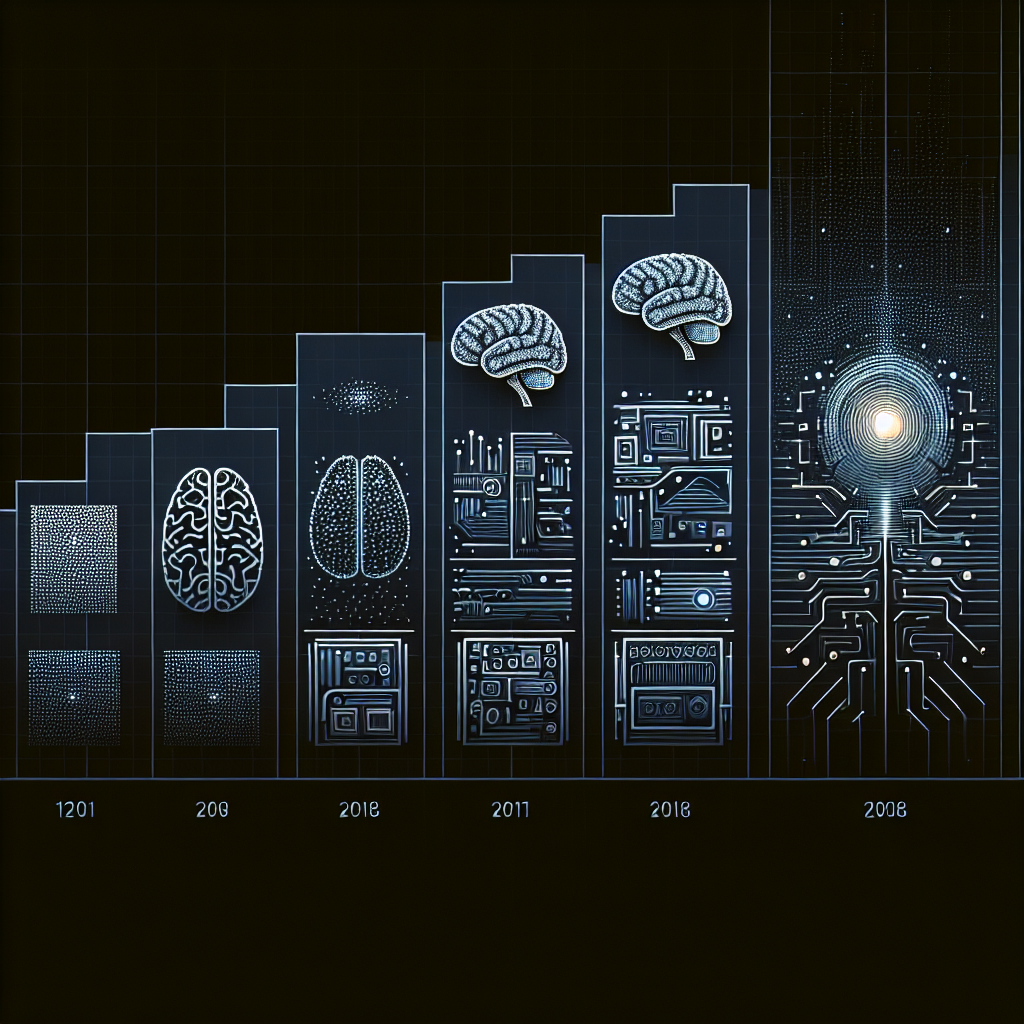The Evolution of AI: A Year of Innovation and Governance Changes
Artificial intelligence has once again demonstrated its astounding trajectory over the past year, marking significant milestones that could define the technological landscape for decades to come. Today, we delve into the latest developments in AI, the ongoing governance reshaping within industry leaders, and the innovative applications that continue to blur the lines between science fiction and reality. Accompanying these strides are the inevitable dilemmas and debates surrounding the proliferation of AI-powered solutions and their potential impacts on various facets of society.
A Year Since ChatGPT: The Rapid Pace of AI Advancements
It has been a compelling year since the launch of ChatGPT, and the milestones achieved since then paint a picture of relentless progress. With the introduction of a mobile app, a code interpreter, Dall-E 3, GPT-4, and voice prompting features, AI has integrated into our lives with unprecedented swiftness. This pace of development signals a transformative period where artificial intelligence is not just an auxiliary tool but is increasingly becoming a central component of modern software ecosystems.
https://www.youtube.com/watch?v=_ftdwNQffS4
Amidst the evolving applications, the latest governance changes in OpenAI have garnered substantial attention. The reinstatement of Sam Altman as CEO, alongside the return of other key figures, is indicative of OpenAI's commitment to recalibrating its leadership to steer future directions. Furthermore, the addition of a Microsoft board member as a nonvoting observer underscores a strategic partnership that aims to harmonize corporate insight with OpenAI's vision, despite not directly influencing board decisions.
The Quest for Safeguarding AI: Governance and Security
As OpenAI fortifies its governance, it underscores the enduring concern of aligning AI's rapid advancement with ethical and safe frameworks. The pledge to enhance board diversity and governance structures reflects a broader industry realization of the need for multi-faceted oversight in AI deployment. This is especially pertinent in light of the rumored Q*AR model, which has stirred conversations about AI's burgeoning capabilities in fields as sensitive as encryption and cybersecurity.
Bridging AI and Business: Introducing Notion’s AI Features
The business sphere is witnessing a seamless integration of AI, exemplified by Notion's new AI features. The capability to parse through a database and present actionable insights is not just a convenience; it's a transformative asset that streamlines decision-making processes. The notion's Q&A feature is a testament to how AI is reshaping business intelligence frameworks, ensuring that the future of corporate management is underpinned by data-driven, AI-assisted strategies.
For businesses looking to tap into the power of AI, Notion stands as a prime example of the technology's practical applications. The embedding of AI within business operations, as exemplified by the platform, is becoming the norm rather than the exception, urging companies to adapt or risk obsolescence.
The Future Tools of Creation: AI Image Generation
Artificial intelligence has penetrated the creative domain with a surge in image generation capabilities. The unveiling of real-time text-to-image generation models such as SDXL Turbo and live canvas features in tools like Leonardo AI and Clip Drop Pro, highlight AI's expanding role in the creative process.
The democratization of complex creative functions, which once required extensive technical skills, is altering the landscape of content creation. Innovations like magnific's upscaling and enhancement tools show how AI is not only creating but also refining visual content with an increasing level of sophistication.
The Corporate AI Ascension: Stability AI’s Financial Moves
The reported search for buyers by Stability AI, along with the internal pressures facing its CEO, spotlights the turbulence that can accompany rapid growth in the AI sector. The situation reflects the delicate balance startups must maintain between innovation, leadership, and financial strategy. The potential of AI has attracted massive investments and partnerships, but it also brings to light the importance of sustainable business models that can withstand the pressures of rapid scaling and leadership dynamics.
For readers interested in the financial underpinnings of the AI tech boom, Fortune’s detailed article on Stability AI’s situation offers valuable insights:
[Add link to the Fortune article if relevant and available]
The Legal Landscape of AI: Copyright Controversies
As AI-generated content becomes more prevalent, legal jurisdictions worldwide are grappling with its implications on intellectual property laws. The Beijing internet Court's recent decision in favor of copyright for AI-generated images reflects a divergence in legal interpretations, contrasting starkly with Western courts. This development could have far-reaching consequences for content creators and AI developers alike, setting a legal precedent that may influence global copyright discussions.
Conclusion: Reflections on AI's One-Year Quantum Leap
If the past year serves as any indicator, the future of AI is not a distant vision but an immediate reality. The ongoing leadership revamps, cutting-edge applications, and the ever-evolving discourse around AI's role in society offer a glimpse into a future where technology and human ingenuity intersect in unprecedented ways. As we continue to navigate these changes, the imperative to strike a balance between innovation and governance remains a central theme in ensuring that AI's potential is harnessed responsibly and ethically.
Related News
- Unpacking the Latest Buzz in AI: A Week of Breakthroughs and Innovations
- Exploring the Latest Frontiers in AI: A Comprehensive Analysis
- Unraveling the Kaleidoscope of AI: A Week of Unprecedented Breakthroughs and Drama
- Navigating the Tides of Change: An In-depth Look at AI's Latest Developments
- The Evolving Landscape of AI: Key Developments and Unfolding Narratives
